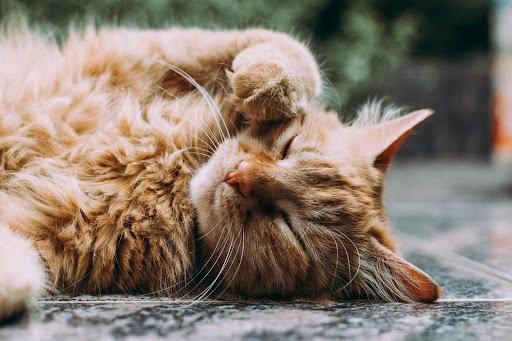As a cat owner, you're always on the lookout for ways to improve the health and happiness of your furry friend. One supplement that's gaining attention for its nutritional benefits is salmon oil. Rich in omega-3 fatty acids, this oil can be a powerful addition to your cat's diet. Below, we'll delve into the advantages of fish oil for cats, how to dose it correctly, and ways to ensure you're choosing a quality supplement. Keep reading to give your cat the benefits of this natural elixir.
Benefits of Salmon Oil in Feline Nutrition
Salmon oil is heralded for its high omega-3 fatty acid content, particularly EPA and DHA, which are essential for a cat's overall health. These nutrients promote healthy skin and a shiny coat, reducing the occurrence of dry or itchy skin that plagues many domestic cats. The regular inclusion of salmon oil in a cat's diet can lead to noticeably healthier fur within just a few weeks of consistent use.
Moreover, omega-3 fatty acids play a pivotal role in cognitive function and can help maintain your cat's sharpness well into their senior years. For kittens, these nutrients assist in brain and eye development, underpinning their growth with strong foundational health. Additionally, salmon oil's anti-inflammatory properties can provide relief for cats suffering from joint issues or arthritis.
The cardiovascular benefits of salmon should not be underestimated either. Regular supplementation with this omega-rich oil has been associated with heart health improvements, which can be particularly important for older cats or breeds prone to heart conditions. This preemptive nutritional strategy may support a longer and more vibrant life for your feline companion.
Integrating salmon oil for cats can also bolster the immune system. A robust immune system is your cat's first line of defense against disease and infection. As they age or face environmental stressors, their immune response can weaken, making the support from salmon oil's nutrients invaluable.
Understanding the Right Dosage of Fish Oil for Cats
The appropriate dosage of salmon oil is critical for maximizing its omega-3 health benefits while minimizing any potential risks. Over-supplementation can lead to excess calories and fat in your pet's diet, which could contribute to weight gain or digestive issues. It's essential to follow the recommended dosage on the product label or to consult with your veterinarian for personalized advice.
Typically, the dosage is determined by the weight of the cat. A general guideline for supplementation is to provide approximately 1/4 teaspoon of salmon oil per 5 pounds of body weight per day. However, this can vary based on individual dietary needs and the concentration of the oil.
The Best Ways to Incorporate Salmon Into Your Pet's Diet
Incorporating salmon oil into your pet's diet can be done with minimal fuss if you know the secrets to success. One of the simplest methods is to mix the oil directly into their regular food. Most cats find the flavor of salmon oil appealing, leading to improved palatability of their meals and potentially better eating habits.
If your cat is particularly fussy or sensitive to changes in their food, you may need to introduce salmon oil gradually. Start with a tiny quantity mixed into their food, slowly increasing the amount each day. This can prevent rejection and allow your cat's digestive system to adjust to the new supplement.
Some pet owners have found success by using salmon oil as a reward or treat. Certain cat treats and toys allow for the oil to be drizzled over or inside them, creating an enticing and healthy treat for your pet. This method is a good approach for cats that require positive reinforcement for dietary changes.
Lastly, there's the option of using specialized salmon supplements designed specifically for cats. These products come in convenient pump bottles or capsules that can be punctured and squeezed onto food, enabling precise dosing and minimizing mess during meal prep time.
Overall, the advantages of adding salmon oil to your pet's diet can be substantial, ranging from improved skin and coat health to enhanced immune function. By choosing a high-quality product, providing the correct dosage, and integrating the supplement into your cat's meals thoughtfully, you can help ensure your cat reaps all the benefits without complications. As with any nutritional changes, consultation with a veterinarian can provide insight tailored to your cat's specific health needs.















